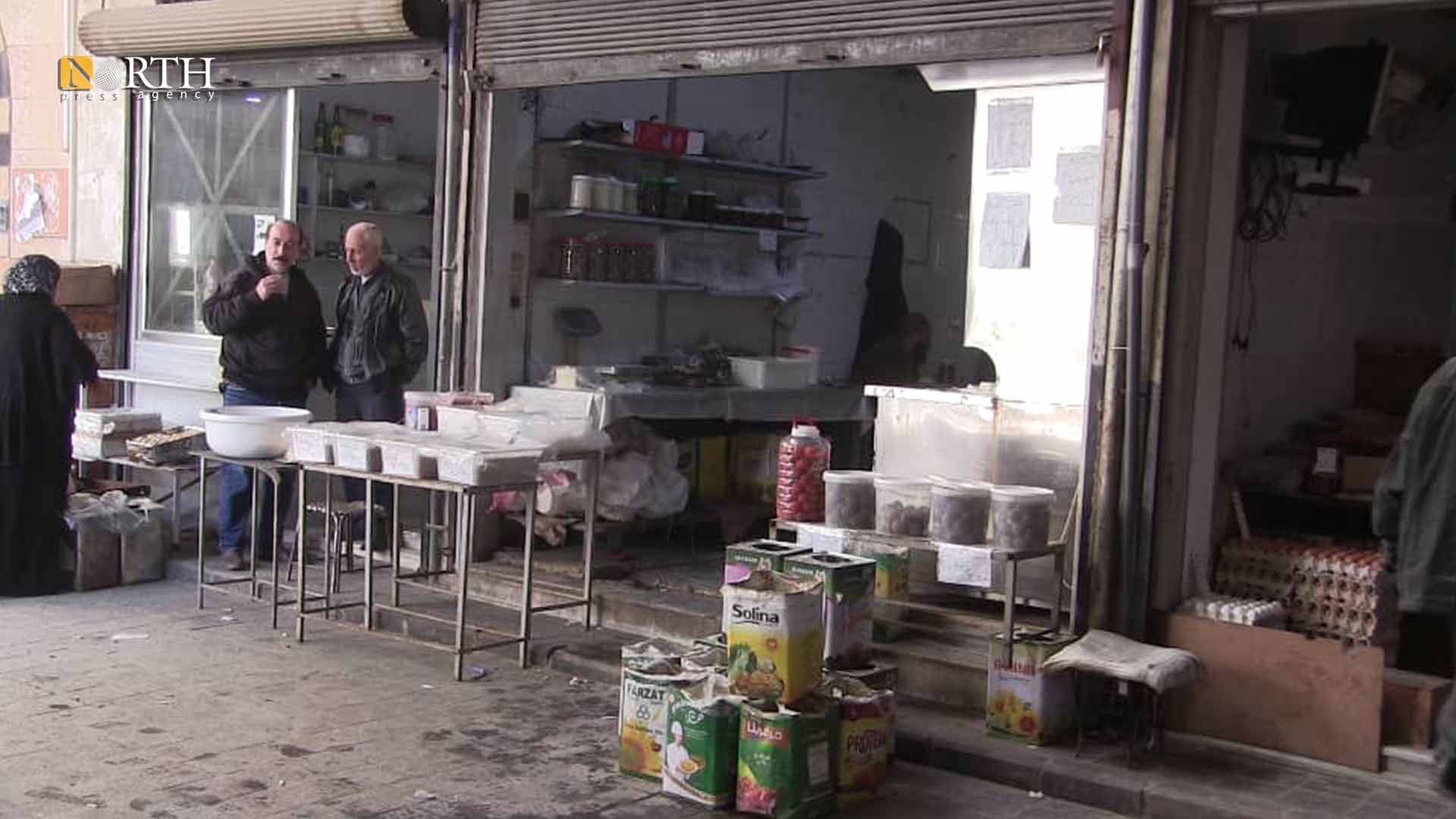Olive oil price to rise despite ban on export: Economist in Syria’s Damascus
DAMASCUS, Syria (North Press) – On Saturday, an economist in the Syrian capital, Damascus expected that the government’s decision to stop exporting olive oil will lead to the monopoly of traders and increase its prices in the market later.
The economist, who preferred to remain anonymous, said that some traders started to buy big amounts of olive crop and olive oil during the current season amid the unavailability of alternatives for farmers and producers.
“The decision to stop exporting olive oil by the end of the current season aims at withdrawing large quantities of oil from the markets, in preparation for reopening the export later,” the economist added.
On August 11, the Syrian Prime Minister, Hussein Arnous issued a decision to temporarily suspend the export of olive oil until the end of this year “aiming at controlling prices.”
However, “this decision will not benefit the farmer or control olive prices, on the contrary, it will contradict this goal,” the economist considered.
The price of an olive oil tin (with a capacity of 16 kilograms) is ranging between 200,000 and 250,000 Syrian pound (SYP) (from 60 to 75 US dollar) despite the availability of the material. Its price was 100,000 SYP during the last season.
According to these prices, olive oil will be out of consumption for most of the people in Damascus and other government-held areas, according to the economist.
Estimates of the Olive Office at the Ministry of Agriculture and Agrarian Reform indicate that Syria’s olive production for this season will amount to about 645,331 tons, while olive production reached 850,341 tons last year.
The decision came at a time when olive farmers in government-controlled areas are experiencing many difficulties, some of which are natural due to the fires that ravaged olive trees in the coast, the spread of agricultural pests, and others as a result of the government’s neglect to provide agricultural requirements such as fertilizers, pesticides and others.
“The biggest obstacle facing farmers, after the fires that occurred last year, is the high costs of securing fertilizers and pruning trees,” a farmer in the countryside of Latakia told North Press via a phone call.
“The high labor costs of harvesting olives affect the delay in the arrival of the material to the markets, as farmers rely on themselves and their family members only,” he added.
“The production of this year has decreased compared to the previous one,” the farmer noted.
Earlier, the Director of the Olive Office at the Ministry of Agriculture and Agrarian Reform Abeer Jawhar expected in a statement to the pro-government al-Watan newspaper that olive oil prices would witness a “slight increase this year compared to last year.”
“The local olive oil is an export product with distinction and is desirable in international markets,” she added.
“If its export is suspended, the farmer will be affected and will not continue to produce,” she referred.
“The production of this season will decrease by 24% to the previous one, and according to preliminary estimates, the amount of oil production is expected to be about 103,000 tons,” she noted.
“The government and its traders have concluded contracts to export olive oil to Russia and Iran,” according to the economist.

